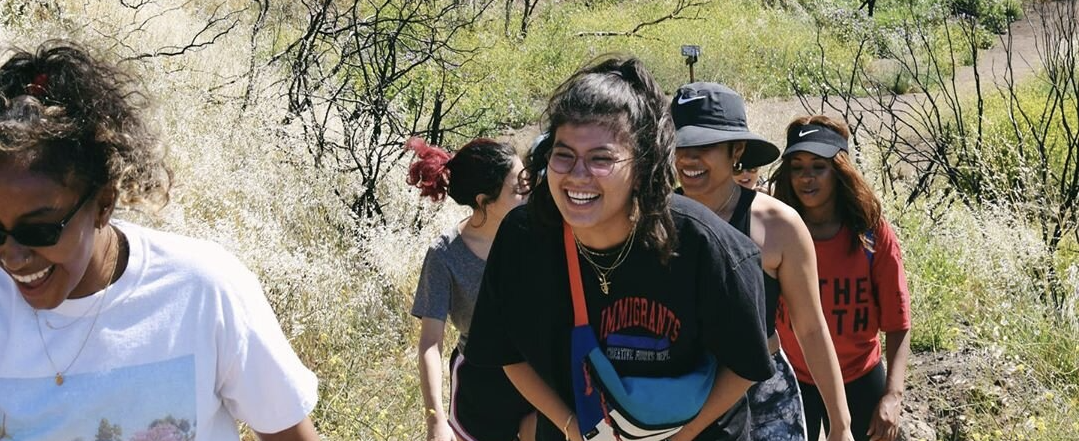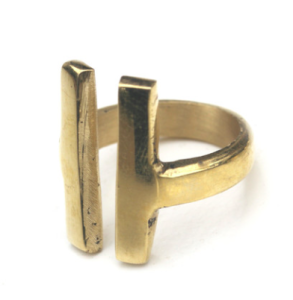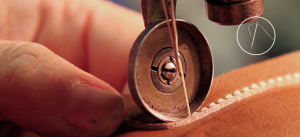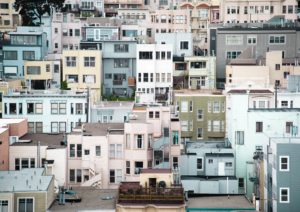By Tania Roa
We’re served ads every day from companies claiming we ‘need’ their products to make us happy and exploiting our insecurities to get us to buy. Many of us purchase more than we should, exhausting our limited resources and inadvertently harming the planet. And that void that we tried to fulfill through retail therapy? It probably still lingers.
I live in one of the most expensive cities in the world. All that wealth attracts more greed and more ads. As more of our community members find themselves without shelter, and many struggle to pay rent despite having multiple jobs, they know firsthand that money isn’t spread around equally. Economic and social inequality is rampant in Los Angeles.
Combatting inequality with support
It’s hard not to get frustrated at a broken system built off the backs of the working class. One way we can combat it is to divest and stop buying from multinational companies that perpetuate structural and systemic wealth inequality.
We Angelenos can decide to support small businesses – our friends, family, and neighbors. We can choose to shop only when we need something, not when an advertising agency tells us to do so. And we can gift one another meaningful, long-lasting gifts or acts of service instead of low-quality, disposable products because we feel pressure to save face during the holidays.
In a city with many cultures, religions, and backgrounds, we have people from all walks of life living under various circumstances – from the modern beachfront houses in Santa Monica to the historically underserved neighborhoods of Compton. No matter what part of Los Angeles you’re in, you can make a difference using the resources you have.
Don’t know where to start? Below is a list of local, small, and sustainable brands to support.
Apparel
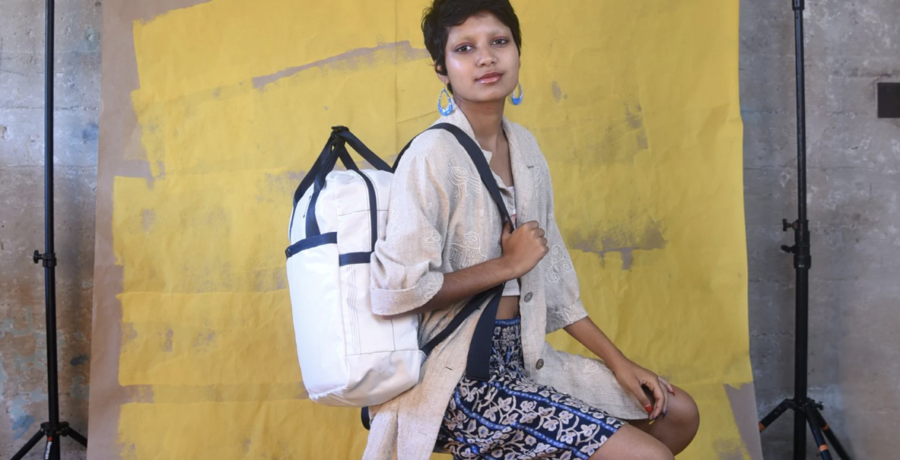
- Rewilder is an excellent example of the power of upcycling. All products are handmade and designed from reused materials, drastically reducing the overuse of natural resources. Through its guiding principles, Rewilder creates products that illustrate the meaning of zero-waste fashion.
- Sustainable fashion can and should be inclusive of all body shapes. Latinx-owned Sotela creates made-to-order clothes, so every customer can feel confident knowing their purchase is designed for their style and size. Garments consist of natural fibers and nontoxic, local dyes to diminish the effects of pollution.
- Chi qc revives previously discarded fabrics with a dose of creativity. The founder, Chi, is of African and Korean descent, and they created Chi qc to reduce what ends up in landfills while telling a story through every piece. Products also contain organic cotton to stand against GMOs and pesticides that degrade soils, waterways, and the health of rural communities.
Daily Essentials
- The values and traditions embedded in Latinx culture gave rise to SBJ Esntls, a self-care brand that encourages people from all backgrounds to start and enjoy their self-care journey. It centralizes diversity and inclusivity to ensure products remain accessible for all. By packaging products in glass bottles intended for reuse, SBJ Esntls minimizes waste in their production line and consumers’ homes.
- While self-care is necessary, it shouldn’t involve the destruction of the planet. Sustain LA provides refillable products for everyday use, including soaps, shampoo, and cleansers. Championing the concept of zero waste, which is a philosophy that focuses on avoiding sending anything to the landfill or incineration, Sustain LA greatly reduces pollution and its harmful effects on people, animals, and the planet.
- Re_ is changing the way we think about and approach grocery shopping. It’s all too common for us to see plastic packaging and an overabundance of waste at grocery stores, but Re_ carries bulk, organic, non-GMO, and plastic-free goods in reusables to make it easier to shop more sustainably.
Food
- In many areas of Los Angeles, residents must travel far in their search for fresh, organic food. The Ron Finley Project has a solution to our food insecurity issues: grow food right at home. By teaching people how to create a ‘food sanctuary’ on abandoned lots and create a business doing so, Ron and his team are innovating the region’s food system. As Ron says, it’s time we “Plant some sh*t!”
- Another organization working to address food apartheid is Crop Swap LA. Jamiah Hargins and his team are building a network of gardeners to share their resources, including veggies, herbs, fruit, and homemade items. Through micro-farms, Crop Swap LA transforms lawns into biodiverse markets by and for the people.
- Emily started Homegrown Kitchen to share her love for homecooked meals with people in all spaces – from offices to friendly gatherings. Her dedication to using natural, organic ingredients ensures fresh, nutritious meals. She also embraces diversity by mirroring global flavors, demonstrating the importance of multicultural approaches to sustainability to match our growingly diverse county.
Education
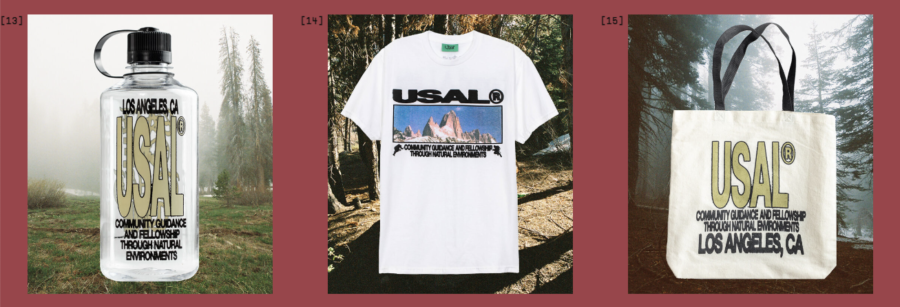
- Adelaida Bautista and Patricia DeRobles changed the meaning of education when they opened Café con Libros Press in downtown Pomona. As women of color and first-generation college graduates, they felt that U.S. school curriculums did not reflect the diversity of voices in our nation. Café con Libros is a nonprofit combining arts, literature, and culture by centering stories of people neglected in mainstream media.
- We can’t talk about conserving Los Angeles without talking about our iconic coast. Heal the Bay is an environmental nonprofit protecting our coastal waters and watersheds to ensure clean, safe, and healthy water for all Angelenos. They advocate for clean water policies, climate action, and plastic bans to improve the welfare of our oceans. Through hands-on education, Heal the Bay makes science accessible to all ages.
- Usal merges the healing power of nature with education. They offer weekly workshops and activities to anyone interested in the outdoors, regardless of experience. For those who may want to start a new outdoor hobby but aren’t sure how, Usal provides an inclusive environment for learning and adventuring.
Nature
Sustainable living means we live with consideration of the Earth’s finite resources. To take action on behalf of the living world we rely on, we must first step out of our technology-driven lives and reconnect with nature.
- For all womxn looking to get outdoors safely, Hike Clerb has a variety of events for you. What started as an intersectional hike club became a movement to explore and gather in nature. Evelynn Escobar founded Hike Clerb after realizing she loved the outdoors but often felt unwelcome due to the lack of representation. Now, the nonprofit provides a space for Black, Indigenous, and women of color to come together and find healing in nature.
- To all LA artists needing inspiration, join Floating for a weekly gathering immersed in natural sounds and explore the intersections between nature and the arts. Whether you hike on a trail or observe nearby wildlife, you’ll find community and peace exploring the region without the chaos of the city.
- For many Angelenos, finding time in nature can be difficult when green spaces are few and far apart. North East Trees builds parks to spread the benefits of being in nature, such as increased energy, improved immunity, and better emotional and mental state. By creating space for more urban dwellers to experience these benefits and hiring youth in underserved communities to participate in these projects, North East Trees is helping conserve local ecosystems and our collective well-being.
By supporting small businesses, we empower our communities and, as a result, ourselves. Small businesses succeed when creativity flows, partnerships emerge, and community needs get addressed. And with inflation and hiring challenges not expected to subside in 2023, we need up our support even more. Small businesses are generally more accountable and lower-impact than multibillion-dollar companies, however, it’s still crucial to demand intentional sustainability practices, even when shopping locally.
With more intentionality in the businesses we support and what we buy, we can help shape a more equitable and just world.
Need more help shopping for the holidays? Check out our degrowth gift guide.
Drop a comment: What small businesses do you love in your city?
Tania Roa is an environmental advocate and co-host of Closing the Gap: a social justice podcast.

